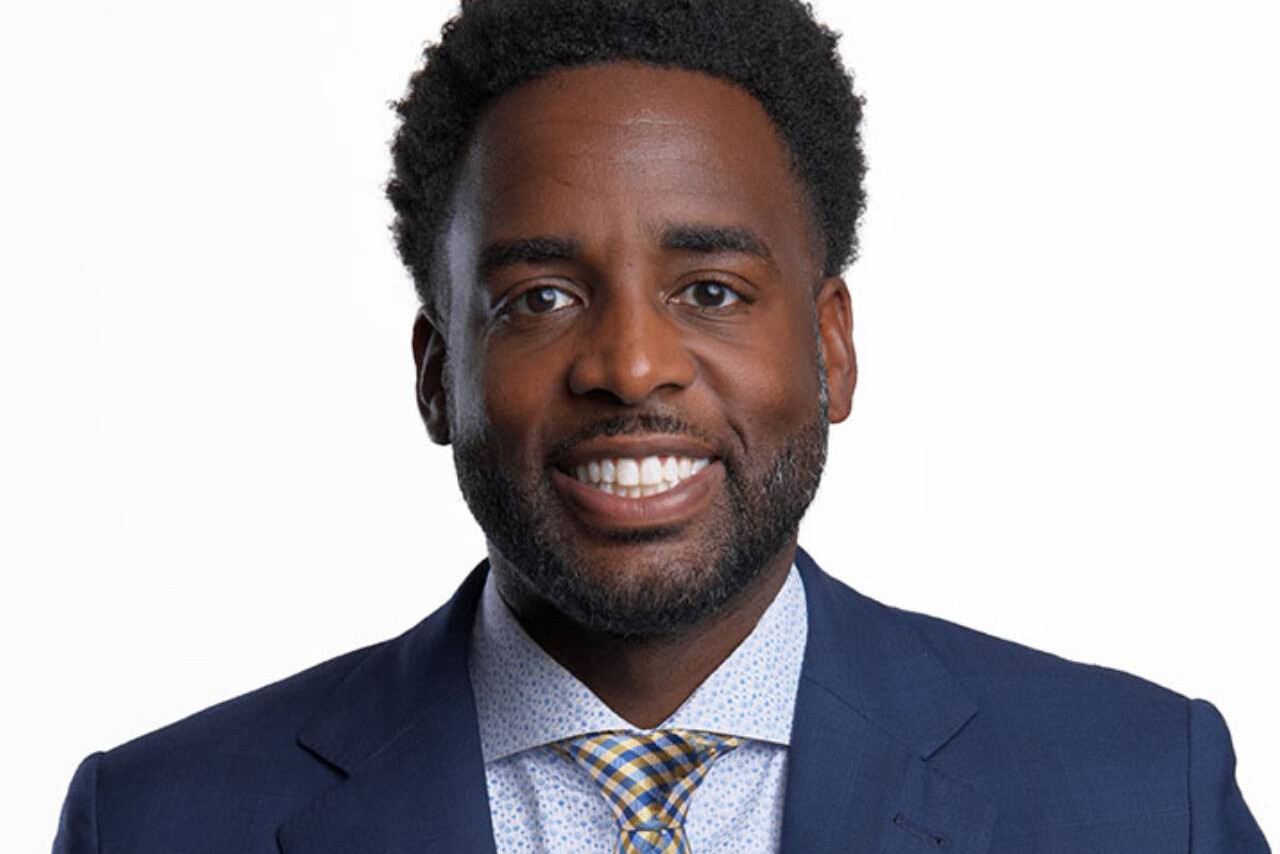Main Second Level Navigation
Breadcrumbs
- Home
- News & Events
- Recent News
- Kareem Morant on How it All Works Out in the End
Kareem Morant on How it All Works Out in the End

Kareem Morant (PGME Cardiology ’16) is the director of the Graham & Audrey Rosenberg Family Cardiac Care Clinic at Toronto’s North York General Hospital (NYGH), as well as the co-owner and operator of Cardiac Care North York. His work focuses on valvular heart disease, cardiomyopathy, heart failure and quality improvement in echocardiography, with a particular interest in the heart disease ATTR amyloidosis.
Morant is also an assistant adjunct professor with the University of Toronto’s Department of Medicine and a committee member with the department’s Black and Indigenous Resident Application and Mentorship Program, a program developed by the department, among many other volunteer and mentorship activities.
Here, he shares some learnings from his journey becoming a cardiology leader and why he’s so committed to helping diversify Canadian health care.
What drew you to medicine?
In high school, I didn’t know what I wanted to do. I was a good student, especially in math and science, and as an athlete I developed good leadership skills, determination and discipline. I also wanted a career where I could help people and interact with them directly. My dad is an engineer, and I remember visiting his office and thinking “where are the people?” so I knew engineering wasn’t for me. Aptitude tests in high school pointed me to medicine.
What is it about cardiology that interested you?
One of my second-year MD advisors, a cardiologist named Dr. Michael Froeschel (PGME Internal Medicine ’02), took an interest in me and invited me to come on cardiology rounds with the other residents. He thought I had the right aptitude and soft skills for the field. I had my doubts — I knew cardiology training would take a lot longer than some of the other specialties.
He told me: “If you want to do something, especially in medicine, it's worth doing what you want to do and what you’re good at doing, because then you'll enjoy it. After all, this is something you're going to do for a lifetime.”
That was a huge part of me choosing cardiology, and he’s still a mentor to me to this day.
You specialize in treating a heart disease called ATTR amyloidosis, how did that come about?
What's unique about the disease is that the most common hereditary form affects almost exclusively people of Afro-Caribbean descent. So, it’s allowed me to see and treat a larger percentage of the Black community than I might have otherwise — which I love. Through the heart function clinic at NYGH, I have established a dedicated amyloid clinic as part of my practice.
How important is it that you are Black and working in this field?
It’s hugely important. For one, I had never even known a black physician until my late teens, and I know that would’ve had a huge impact on me, to help me believe that I could become a doctor myself. Even now, many of my patients are pleasantly surprised when we meet for the first time. We really can’t underestimate the importance of that first impression, how comforting and inspiring it can be.
Also, being of Jamaican descent and with many of my patients also of Caribbean descent, I know the culture, I know the foods, I understand the Patois, I understand the accent. I think it creates a more intimate therapeutic relationship. It's hard to describe, but you can definitely feel it.
You’re also on the Black and Indigenous Resident Application and Mentorship Program committee among other initiatives — what inspired you to get involved in this way?
There are not many Black people in cardiology. When I was going through my training, there were maybe one or two staff physicians out of roughly 100 at U of T. I also do believe there were systemic barriers affecting my own applications to medical school and residency — reflecting larger equity and diversity issues in medicine in general.
The good news is, things at U of T have changed drastically. Specifically, through the resident application program, people can now self-identify as Black or Indigenous and write a separate essay outlining their commitment to EDI in medicine. If a candidate is chosen for an interview, efforts are made to match them with interviewers of a similar background.
What’s been the impact of this committee work?
Former applicants who are now residents will stop me and thank me, which has been really touching. I’m also involved in other U of T and Temerty Faculty of Medicine initiatives through the Department of Medicine’s Black and Indigenous Medical Society, the Summer Mentorship Program, Community of Support and a few others. It’s one of my goals to remain involved in efforts like these and help others along their way.
What words of wisdom would you share with those who are frustrated by the med school or residency application process?
You mean, what would I tell myself if I could go back 20 years? Things will work out as long as you keep at it and continue to do what’s right.
News


